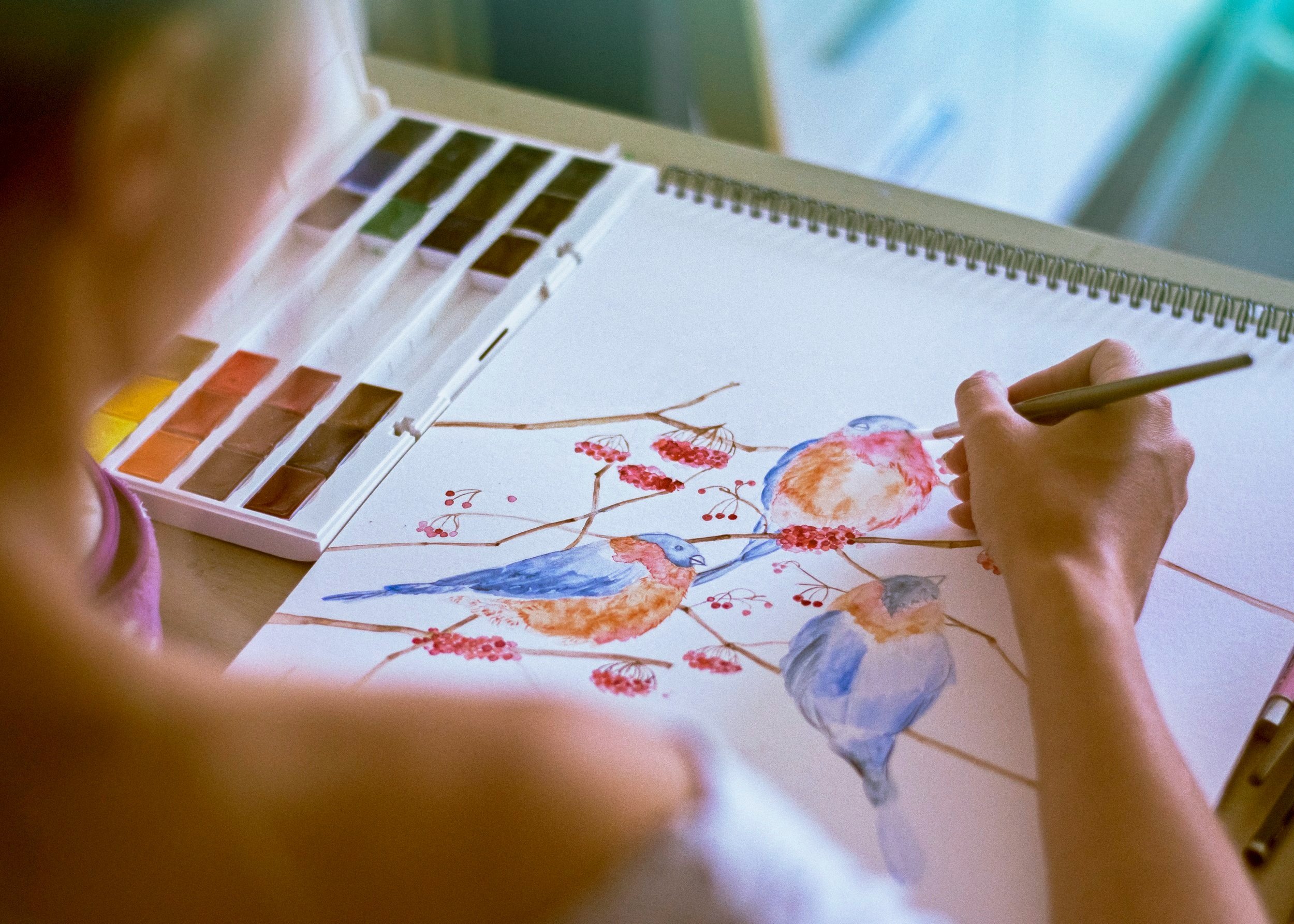“Nobody is ever meant to read your first draft. The first draft is you, telling the story to yourself. ”
Sometime before the Covid years I went to an Elementary School Science Fair—and found that I was shocked at the perfect and professional displays that the children were presenting because most of them had used PowerPoint. I shouldn’t have been. I obviously went expecting what I remembered from science fairs: hand lettered poster boards with drawings in colored pencil, dioramas made out of shoe boxes—everything hand made. But time had marched on, and new technology had entered elementary school. These projects looked polished, almost corporate, which felt jarring given the seven-year-old standing in front of me. It made me feel like something was lost, though I couldn’t put my finger on it. I confess I like seeing a child’s version of a great horned owl much more than I enjoy clip art.
Don’t get me wrong. I think kids should learn the latest technology—but there’s something about learning, about being connected to the process, about experiencing the steps between an idea and a polished product that are harder to see or appreciate when it happens automatically. The new technology makes first drafts seem unnecessary—or even too childish for children. It makes it seem like there’s always a way to get it right the first time.
But getting it right the first time isn’t how you heal. And it isn’t how you grow. When you heal, or grow, when you are trying to get your story out, or trying to sort what you know, or what you know now—it can be really hard. And part of what makes it hard is the lack of practice or familiarity, and perhaps, most importantly, honoring of the fact that this piece of work is just a draft. You can get hung up on truth—or you can get hung up on clarity—both of which are important, but at this phase of sorting, naming, exploring—the goal is to get out what you can—what you know at this moment—what you can bear—what you can hold.
You forget that you can write something one day and contradict yourself the next. You forget that you can write your way into an idea and get lost for a while—and not have a clear idea of where you ended up—or where you wanted to go. You forget that you may tell the same story over and over—trying to connect, not the words, but the emotions, until suddenly, one day—it all comes together.
And while you may be telling the story to yourself, you sometimes need a listener: often a therapist or someone in a helping role, or a growing role. And that’s why it’s so important in the helping and growing professions to learn how to listen, rather than (as is fashionable and satisfying) to learning how to fix. Because you need the chance to talk in drafts—to be able to have first draft conversations. Conversations where you are sorting. Where you say something and listen to it in your heart, mind and body. And then you revise. Conversations you have and then months later, you come back to—and you start again. And again.
If I go back to my experience creating a project for a science fair—to a large poster of a peregrine falcon hand drawn from a picture in the Encyclopedia Britannica—what I got through the trial and error and practice of drawing wasn’t just a drawing, it was a relationship. It was a relationship to the peregrine, one I still have today—where I am overjoyed when I see one. But through the process I was also building a relationship with myself—or with the part of me that was learning how to learn— or was learning how to persevere in the face of something challenging. Building a relationship with the part of me that cared deeply for something—to know what that kind of care feels like.
You only get a relationship with what you spend time with. Which is where first drafts come in again. First drafts are where we start all of our relationships. How can you have a relationship with your process, your story—the way you understand yourself or others—if you don’t have a practice of first drafts? How do you allow yourself to start? How do you allow yourself to revise? How do you allow yourself to start again?
© 2023 Gretchen L. Schmelzer, PhD
For more ‘first draft’ inspiration you can watch this interview between Tim Ferriss and Neil Gaiman
Or you can read the best known primer on first drafts: Anne Lamott’s Bird by Bird
